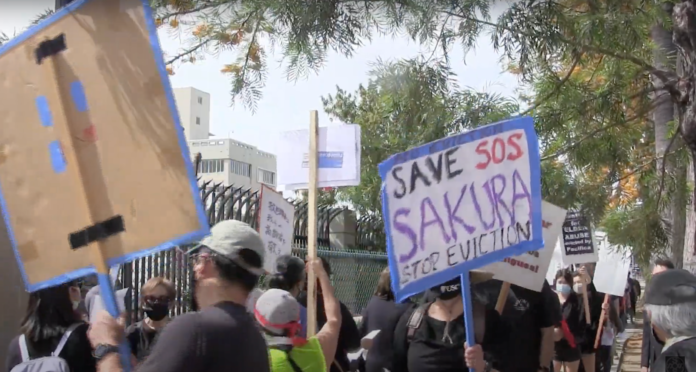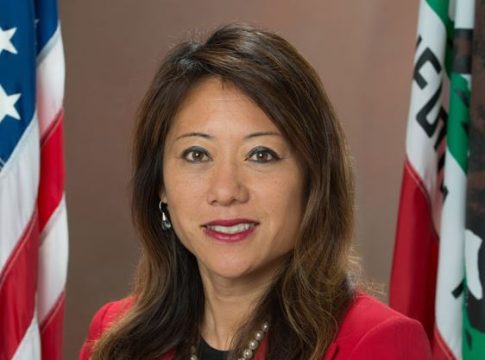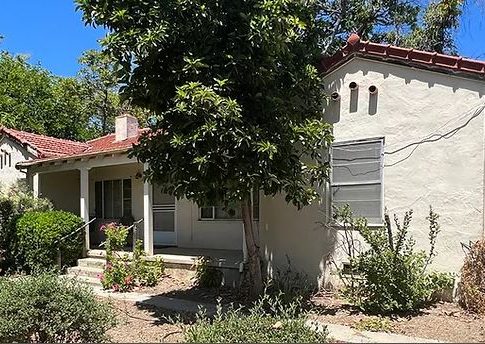By Briana Lim, AsAmNews Intern
AsAmNews has written on numerous occasions about activist organization Save Our Seniors‘s work on preventing the closure of Sakura Gardens at Los Angeles, the only senior care facility that provides bilingual, bi-cultural services to its Japanese American residents. AsAmNews covered the early stages of the community activism, the progress, and its current, hard-pressed efforts to stop the closure. In this article, we look into the extremely personal ties Save Our Seniors members have with the movement.
A Personal Fight
Taiji Miyagawa is a third-generation Japanese American (called sansei in Japanese, the third generation after the original “issei” immigrants and their children “nisei”). He serves on the Save Our Seniors Coordinating Committee and as their PR representative.
When asked about why he chooses to fight against the closure of the facility, he explains how it shows his appreciation for Sakura’s high-quality service to its elderly residents, who formerly included his grandparents. “I became involved with SOS because of the gratitude I have for the original founders providing a good quality of life for my late grandparents, and empathize with the remaining residents and families.” He is angry that the $80 million in community donations that Keiro received were not put towards its intended goals of enhancing the quality of elderly life.

Gentrification and Healthcare Disparities
Taiji’s passion goes beyond a sentimental attachment. He explains his disappointment in the gentrification of Boyle Heights and Lincoln Heights of Los Angeles, as well as the inequalities of the U.S. healthcare system. “I have also been a long opponent of gentrification in Boyle Heights and Lincoln Heights where two of the facilities are located. Finally, because of inequalities in the U.S. healthcare system, we need to continue fighting for bilingual/bi-cultural healthcare services, and this case exemplifies how they are literally a life and death issue for many.”
LATEST STORIES
Gentrification occurs regularly in cities throughout the world, but areas of Los Angeles like Boyle Heights and Lincoln Heights, where the non-white population exceeds 90%, feel an amplified effect. Erasing the Japanese services that Sakura provides diminishes the non-white culture of the area and is representative of the greater gentrification movements. Angelenos point out how gentrification may attract a wealthier crowd, but hinders the social mobility of the middle and working-class natives, according to the Daily News.
The pandemic only exacerbated the existing weaknesses. Chinatowns across the country were void of tourists due to decreased tourism and anti-Asian sentiment. Non-English speaking small businesses lacked access to Paycheck Protection Program loans, says the Washington Post. Minority communities struggle to recover after a year of low business, which makes them susceptible to speculators looking to make profits.
The racial disparities within the healthcare system compound the effects of gentrification. The U.S. healthcare system is rife with health and healthcare disparities between racial groups. The Lancet medical journal describes how being a predominantly immigrant minority group leads Asian Americans to face unique health care challenges. Asian Americans may be ineligible for Medicaid due to residency requirements and less likely to hold jobs that cover private insurance. Asian Americans also face language proficiency barriers that further hinder their access to healthcare. These barriers to quality health care disproportionately affect senior Asian Americans, making Save Our Seniors’s work all the more essential.

The Democratic Process
Taiji understands the importance of hearing out community voices, and cites SOS’s democratic nature as its key. SOS is a grassroots group seeking change in its own community. “The work is important because equality in healthcare (or any other reform benefiting the public) is impossible without the wielding of grassroots political power,” he explains. “Japanese Americans have a large percentage of senior citizens in their demographic. Because of the Keiro non-profit’s disservice to the community, many now face diminished options for where they will spend their twilight years that is culturally appropriate. This is also why SOS, for the longer-term, is supporting AB 1400, the CalCare Act, which addresses healthcare inequality.”
However, making progress “by the book” through legislative channels is a grueling, slow process. SOS is hoping to pass bill AB 279 to bar Pacifica Companies from giving up Sakura. The closure has been delayed until late-August, but SOS is aiming to get a hearing with the California senate before the summer recess—which begins on July 16th.
SOS estimates there were 85 residents at Sakura in April. Some residents have since left out of fear of the pending closure. SOS accuses Pacifica of using scare tactics to pressure these tenants to leave. It is unclear how many residents remain.
Yet, as is always required of those seeking change, Taiji remains optimistic about their prospects. When asked about their chances, he responded: “Currently, because there is no fiscal burden on the State with AB 279, according to Senate Rule 28.8, if the Chairperson of the Appropriations Committee agrees with that determination, he can move it directly to the Senate Floor for a Second Reading. Thus, it is still possible that AB 279 can win a Senate Floor vote by July 15, beating the summer recess and being signed into law by Governor Newsom.”
He also mentions the influence of external forces on the bureaucratic process, noting the opposition posed by the CA Department of Health and the influence of the California Association of Health Facilities lobby as hurdles.

Plainly put, “The current Sakura ICF residents are undergoing trauma.”
Taiji describes the contemptible decrease in quality Sakura residents have experienced since the movement began. “SOS had to have LA County intervene after reports that Pacifica Companies failed to repair a hot water and water pressure issue for weeks (subsequently fixed).” The quality difference in food and service has been palpable but not quite tangible, and LA County has yet to prove it. “There have been staff layoffs, including release of longtime, bilingual staff. Residents have been pressured to move out to less desirable senior care facilities, further away from their families and without Japanese bilingual/bi-cultural staff. Pacifica staff have been slandering SOS and discouraging residents and families from listening to us as we attempt to inform them of their legal rights.”
Again, the circumstances that Sakura residents endure are emblematic of greater societal problems. Asian Americans, especially seniors, have long been undervalued and Taiji is tired of it. “The AAPI community must learn that things like the Sakura ICF situation, or the current wave of Anti-Asian violence on the streets are rooted in our historical relationship to U.S. society. Minor reform will not fix things. We must work towards complete transformation of society. We are not treated as equals and our position as being either scapegoats or a source of super-exploitable labor remains, despite the falsehoods of the Model Minority Myth. The corporate-controlled healthcare system will always discriminate against persons that do not have English as their primary language and will never respect our unique cultures until we win major policy reform and a profound cultural shift in how we, as a society, decide to treat all human beings with equal respect.”
AsAmNews has Asian America in its heart. We’re an all-volunteer effort of dedicated staff and interns. Check out our new Instagram account. Go to our Twitter feed and Facebook page for more content. Please consider interning, joining our staff, or submitting a story or making a contribution.









